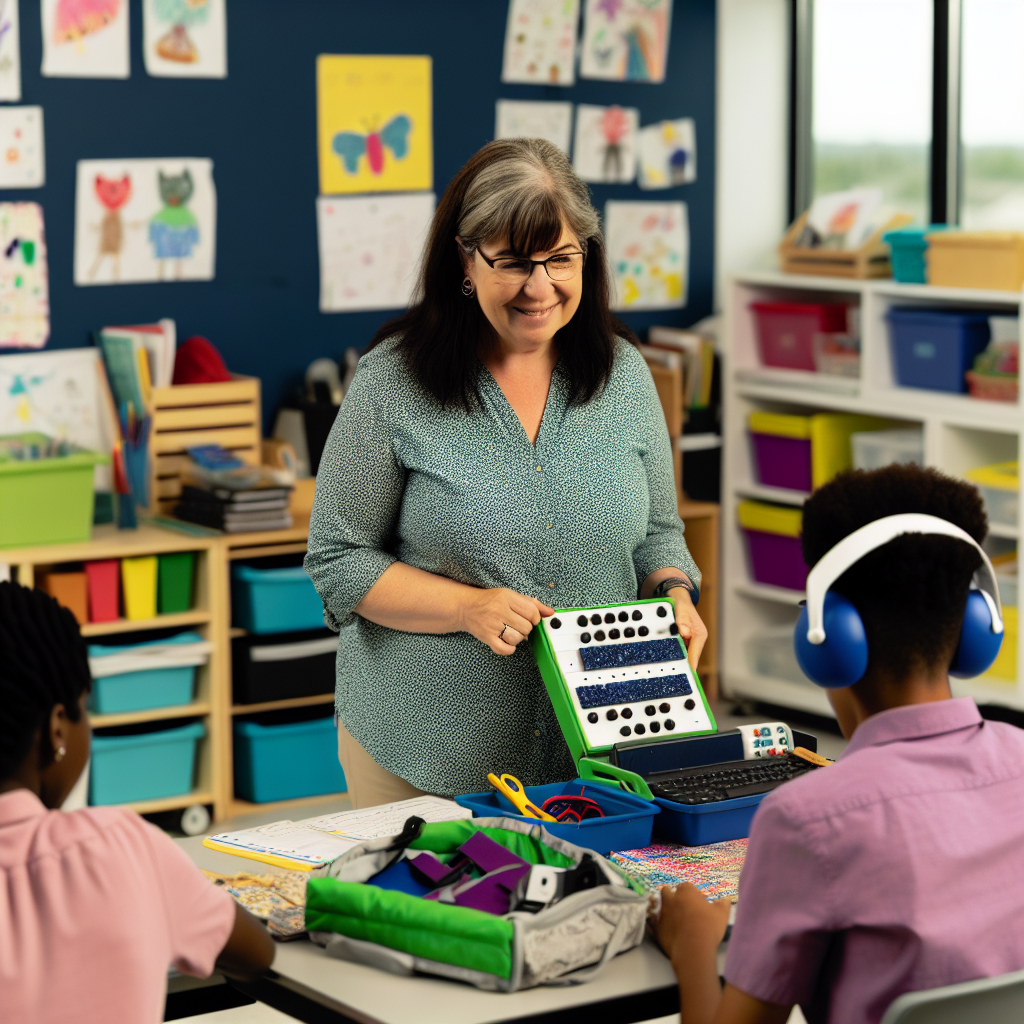Overview of Special Education Careers in Canada
Understanding Special Education
Special education serves students with diverse learning needs.
This field addresses various disabilities and learning challenges.
Professionals in this area aim to create inclusive environments.
They work diligently to help students achieve their potential.
Career Opportunities in Special Education
Canada offers numerous career paths in special education.
Teachers, therapists, and counselors all contribute significantly.
Special education teachers provide personalized instruction.
Occupational and speech therapists support students’ development.
School counselors often guide families through challenges.
Qualifications and Training
Most positions require specific educational qualifications.
Teachers typically need a bachelor’s degree in education.
Specialized training in special education enhances their skills.
Therapists often hold advanced degrees and certifications.
Continuous professional development remains essential in this field.
Government Support and Resources
The Canadian government provides funding for special education.
Programs aim to improve services for students with disabilities.
Each province has its own regulations and support systems.
Families can access a variety of resources to assist them.
Advocacy and Community Involvement
Advocacy plays a crucial role in improving special education.
Organizations actively work to raise awareness about needs.
Community involvement fosters collaboration and support.
Parents and educators often join forces to create change.
Key Roles within Special Education
Teachers’ Responsibilities
Special education teachers play a crucial role in diverse classrooms.
They develop individualized education plans tailored to each student’s needs.
Furthermore, they adapt curriculum materials for various learning styles.
Unlock Your Career Potential
Visualize a clear path to success with our tailored Career Consulting service. Personalized insights in just 1-3 days.
Get StartedThese educators provide essential support for students with disabilities.
Additionally, they collaborate with parents to facilitate better learning outcomes.
Administrative Roles
Administrators oversee special education programs within schools.
They ensure compliance with educational regulations and policies.
Moreover, they manage resources and staff dedicated to special education.
Effective communication with teachers and parents is vital to their work.
Ultimately, they advocate for students’ rights and access to education.
Support Staff Contribution
Support staff include educational assistants and therapists.
They provide additional assistance to students in need.
For instance, educational assistants help with daily classroom activities.
Meanwhile, therapists address specific developmental needs.
The collaboration between teachers and support staff is essential for success.
Together, they create an inclusive environment that fosters learning.
Legislation Supporting Special Education in Canada: An Overview
Key Legislative Frameworks
Canada has implemented several laws to support special education.
The Canadian Charter of Rights and Freedoms ensures equal education for all.
This charter addresses discrimination based on disability.
Provincial governments also establish specific laws for special education.
For example, Ontario’s Education Act mandates inclusive education practices.
Federal Initiatives and Policies
The federal government plays a crucial role in supporting special education.
Programs like the Inclusive Education Initiative aim to enhance accessibility.
Additionally, funding is provided to provinces for specialized programs.
This financial support helps schools address diverse learning needs.
Provincial Regulations
Each province has distinct regulations guiding special education.
British Columbia, for instance, requires schools to develop Individual Education Plans (IEPs).
These plans tailor learning experiences to meet each student’s needs.
Alberta’s Special Education Code also outlines rights for students with disabilities.
Impact of Legislation
The legislation has transformed the educational landscape in Canada.
It promotes inclusivity and ensures appropriate resources are available.
Furthermore, teachers receive training to accommodate diverse learners.
Ultimately, these laws foster a supportive environment for all students.
Delve into the Subject: From Classrooms to Screens: How EdTech is Shaping Canadian Education Careers
Educational Pathways for Aspiring Special Education Professionals
Introduction to Special Education Careers
Caring for students with diverse needs defines the role of special education professionals.
These careers require dedication, understanding, and extensive training.
Many individuals are passionate about making a difference in students’ lives.
Types of Educational Programs
A variety of educational programs prepare individuals for special education careers.
Students can choose from undergraduate and graduate degrees in special education.
Additionally, certificate programs offer focused training on specific skills.
Undergraduate Degrees
Bachelor’s degrees in special education provide foundational knowledge.
Core coursework includes psychology, child development, and disability studies.
Hands-on experience through student teaching is often included.
Graduate Degrees
Master’s degrees often focus on advanced strategies and research in special education.
Many programs emphasize inclusive education practices.
Certificates or endorsements in specialized areas can enhance skills.
Certification and Licensing
Certification is crucial for employment as a special education teacher in Canada.
Each province has specific requirements for certification and licensing.
Typically, a bachelor’s degree, teaching practicum, and exams are necessary.
Professional Development Opportunities
Continuous learning is vital in the field of special education.
Workshops, seminars, and online courses offer valuable resources.
Networking with professionals enhances knowledge and practice.
Many organizations provide mentorship opportunities as well.
Career Specializations in Special Education
Special education offers various career paths for individuals.
Some professionals specialize as behavioral therapists.
Others may focus on technology integration for learning support.
Additional roles include special education advocates and consultants.
Support and Resources for Educators
Numerous resources are available to support special education professionals in Canada.
National organizations provide funding and advocacy for diverse needs.
Local educational authorities also offer guidance and resources.
Community groups assist in providing additional support to educators.
Importance of Advocacy in Special Education
Advocacy plays a crucial role in special education.
Educators are often involved in policy-making to improve learning environments.
They also work to raise awareness about the unique needs of students.
This advocacy ensures that all students receive equitable education opportunities.
Explore Further: How Digital Learning Is Creating New Career Opportunities in Canada’s Education Sector
Diverse Learning Needs
Understanding Various Disabilities
Diverse learning needs encompass a range of disabilities.
Understanding these disabilities is crucial for effective support.
Disabilities can impact learning in different ways.
Some common disabilities include autism spectrum disorder and dyslexia.
Each condition presents unique challenges for learners.
Learning Challenges Faced by Students
Many students encounter challenges that affect their education.
Attention-deficit/hyperactivity disorder (ADHD) can hinder focus.
Additionally, students with anxiety disorders may struggle in classroom settings.
Learning disabilities can also impact a student’s performance.
Examples include dyscalculia and language processing disorders.
Support Systems for Diverse Learners
Canada implements various support systems for diverse learners.
Teachers receive training to understand these unique needs.
Special education programs ensure tailored learning experiences.
Collaboration with specialists improves educational outcomes.
Parents and educators work together to create supportive environments.
Incorporating Inclusive Practices
Inclusive education practices are essential for fostering diversity.
These practices embrace students of all abilities.
Differentiated instruction helps meet individual learning requirements.
Technology also plays a crucial role in inclusive education.
Adaptive tools can enhance learning experiences for all students.
See Related Content: Why Pursuing a Career in Early Childhood Education Is Growing in Canada
Support Systems for Special Education: Government Policies and Funding
Overview of Government Support
Canada prioritizes special education through comprehensive government policies.
These policies aim to address the diverse needs of students.
Additionally, funding is allocated to support schools and educators.
Importantly, every province has its own guidelines for implementation.
Federal Policies for Inclusive Education
The federal government promotes inclusive education across the country.
Programs ensure that students with disabilities receive necessary resources.
Moreover, funding programs such as the Inclusive Education Fund support specific initiatives.
This fund helps schools enhance their services for diverse learners.
Provincial Responsibility and Funding Models
Each province shares responsibility for implementing special education policies.
For instance, Ontario provides funding through the Special Education Grant.
This funding supports various needs, including staffing and resources.
Similarly, British Columbia allocates funding based on student assessments.
Accessibility and Support Services
Access to support services is critical for student success.
Schools offer resources such as educational assistants and therapists.
Team collaboration is essential to address students’ diverse needs.
Moreover, training programs help educators develop necessary skills.
Community and Parental Involvement
Community organizations play a vital role in supporting special education.
They provide additional resources and funding for schools.
Furthermore, parental involvement is encouraged to enhance educational outcomes.
Engaged parents can advocate for their child’s specific needs.
Challenges and Future Directions
Despite efforts, challenges in funding and resources remain.
Consequently, continuous assessment of programs is needed.
Future initiatives should focus on enhancing equity in education.
Collaboration among government, schools, and communities is crucial.
Discover More: Exploring Canada’s Fastest-Growing Careers in Education

Integration of Technology in Special Education: Tools and Resources
The Role of Technology in Learning
Technology plays a vital role in facilitating diverse learning needs in special education.
It enhances engagement and allows personalized learning experiences for students with varying abilities.
Moreover, technology can bridge gaps in communication for students with disabilities.
Assistive Technologies
Assistive technologies empower students to overcome challenges in their educational journey.
These tools include speech-to-text software, screen readers, and adaptive hardware.
For example, TalkType software allows students to dictate their thoughts easily.
This aids those with writing difficulties in expressing their ideas effectively.
Educational Apps and Software
A wide range of educational apps supports diverse learning needs.
These applications foster skill development in areas such as math, reading, and social skills.
Apps like Proloquo2Go support communication through symbol-based structures.
They empower non-verbal students to interact more effectively.
Online Learning Platforms
Online learning platforms provide flexibility for special education students.
Platforms like Khan Academy and Duolingo offer personalized learning experiences tailored to individual needs.
This adaptability fosters a nurturing environment for students to thrive.
Parent and Teacher Resources
Many resources exist for parents and educators to enhance their understanding of technology use.
Organizations like the Canadian Assistive Technology Network offer training and support.
Additionally, websites provide webinars on various assistive technologies.
These resources enable educators to implement best practices in their classrooms.
Future Trends in Technology
The future of special education technology holds exciting potential.
Emerging technologies such as virtual reality can provide immersive learning experiences.
Moreover, artificial intelligence can further personalize learning pathways.
These advancements promise to enhance educational opportunities for all students.
Community Involvement and Stakeholder Engagement in Special Education
Importance of Community Involvement
Community involvement plays a vital role in special education.
It creates an inclusive environment for diverse learners.
Moreover, local support enhances educational resources.
Additionally, community involvement strengthens relationships.
This collaborative approach benefits students and families alike.
Strategies for Engagement
Various strategies promote effective stakeholder engagement.
First, organize workshops for parents and educators.
These workshops provide essential information and support.
Furthermore, schools can host community events regularly.
These events foster open dialogue and collaboration.
Role of Educational Professionals
Teachers and special education professionals are key players.
They must actively seek input from the community.
This feedback helps shape tailored educational programs.
Moreover, professional development encourages continuous improvement.
Networking with other educators enriches resource sharing.
Partnerships with Local Organizations
Establishing partnerships with local organizations is essential.
These collaborations can provide additional resources and services.
For instance, organizations can offer training for staff.
They may also engage in advocacy for special needs education.
Moreover, partnerships can facilitate community-based programs.
Benefits of Active Engagement
Active engagement yields numerous benefits in special education.
It enhances awareness of diverse learning needs.
Additionally, it builds a network of support for families.
Consequently, students experience improved educational outcomes.
Finally, ongoing community engagement can lead to policy changes.
Best Practices for Teaching Students with Diverse Learning Needs
Understanding Individual Learning Styles
Every student has a unique learning style.
Recognizing these differences is crucial for effective teaching.
This includes visual, auditory, and kinesthetic preferences.
Teachers can enhance lessons by incorporating various teaching methods.
Utilizing Differentiated Instruction
Differentiated instruction tailors teaching to meet individual needs.
This approach accommodates diverse learners effectively.
Group activities can foster collaboration among students.
Moreover, flexible grouping helps target specific skills.
Implementing Assistive Technology
Assistive technology enhances learning opportunities.
Tools like speech-to-text programs can aid those with disabilities.
Additionally, interactive software can engage students more effectively.
Teachers should stay informed about new technologies.
Encouraging Inclusive Classroom Environments
An inclusive classroom promotes acceptance and respect.
Students learn from each other’s strengths and abilities.
Implementing team-building activities fosters community.
Moreover, celebrating diversity enriches the learning experience.
Providing Ongoing Professional Development
Teachers benefit from continuous learning about best practices.
Workshops and seminars enhance skills for diverse classrooms.
Collaboration with experts can provide valuable insights.
Furthermore, peer support is essential for professional growth.
Professional Development Opportunities for Special Education Educators
Introduction to Professional Development
Professional development is essential for special education educators.
It helps them stay current with best practices and teaching strategies.
Furthermore, professional development enhances their ability to support diverse learning needs.
Types of Professional Development Programs
Several types of professional development programs are available in Canada.
- Workshops and Seminars: These often focus on specific topics.
- Online Courses: Flexible options allow educators to learn at their own pace.
- Conferences: Networking opportunities also present various keynote speakers.
These programs offer vital resources for growing expertise.
Government and Institutional Support
The Canadian government actively supports special education training.
Provincial governments offer funding for various professional development initiatives.
Moreover, universities and colleges also provide tailored programs for educators.
Collaboration with Organizations
Collaboration with national organizations enhances training opportunities.
For instance, the Learning Disabilities Association of Canada offers resources.
Additionally, partnerships with local schools help facilitate hands-on training.
Mentorship Programs
Mentorship provides invaluable guidance for new educators.
Experienced teachers can share knowledge and strategies.
As a result, mentees become better equipped to support their students.
Impact of Continuous Learning
Continuous learning greatly affects educational outcomes.
It empowers educators to implement innovative teaching methods.
Ultimately, this leads to improved student engagement and success.
Additional Resources
Special Education Master’s in Canada
Special Needs Teacher: Occupations in Alberta – ALIS




